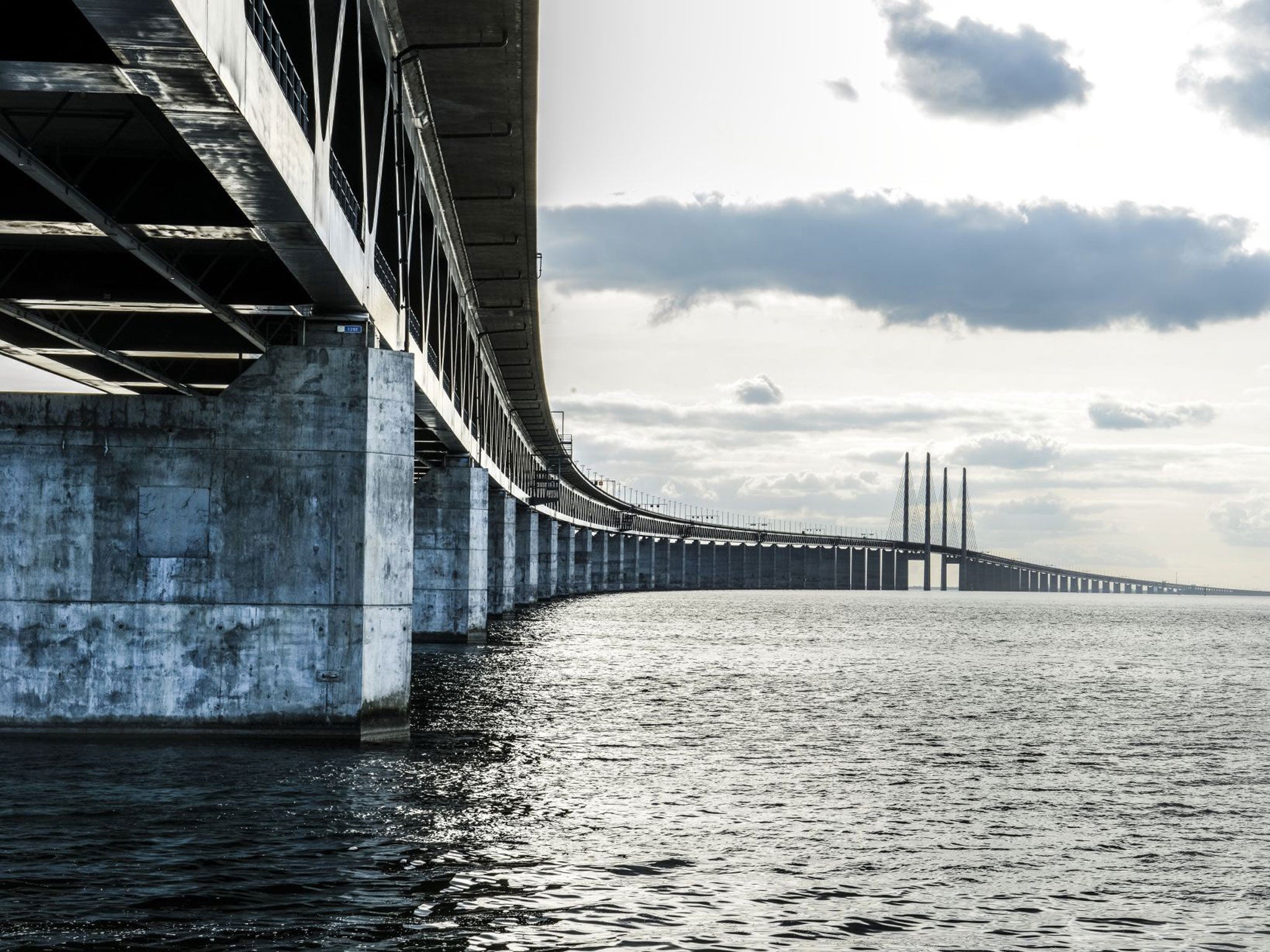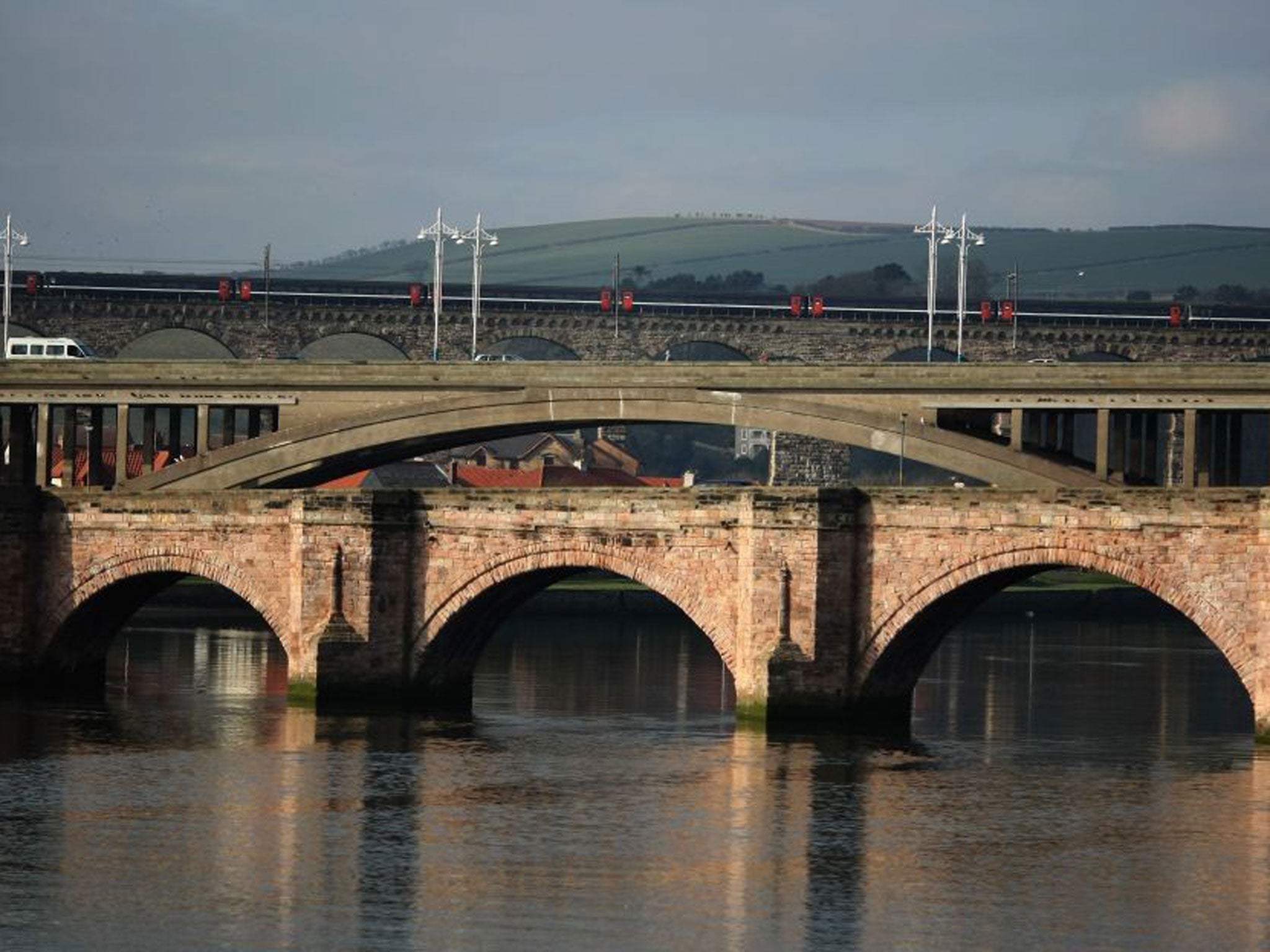Scandi-noir star has dark lesson for Scots
The bridge linking Copenhagen and Malmo has transformed both cities’ fortunes. We should be removing barriers, not creating new ones

What kind of independent country might Scotland become? First Minister Alex Salmond once envisioned a Nordic tiger economy within what he calls the Scandinavian “arc of prosperity” – and as referendum year gets underway, the Scot Nats are still looking north and east.
It only takes a short visit to booming Copenhagen to see why. With its expanding clusters of biotech and clean energy companies, its nightlife and tourism and extraordinary Michelin-starred restaurant scene, the Danish capital oozes cultural confidence and architectural cool.
On the same trip I visited Malmö. The last time I entered Sweden from Denmark, which was in 1987, you had to cross the Øresund by ferry, and the queue to get through customs took half the morning. Thanks to the Øresundsbron, a giant road and rail bridge that opened in 2000, the journey now takes five minutes. The border guards that once held me up were sent packing long ago under the Schengen Agreement.
Television viewers would recognise the Øresundsbron as the centrepiece of the Swedish-Danish crime drama, The Bridge, series two of which has been airing on BBC4 this month. Blink, and you’ll miss the line of paint that serves as an international boundary (and across which a dismembered corpse was precisely laid in the opening scene of Series One).
The drive across offers spectacular views of the Lillgrund, Sweden’s largest offshore windfarm, which boasts 48 turbines over 100m high, providing power for 60,000 homes. Scandinavians have embraced green energy in a way that the SNP (which wants domestic electricity generation to be 100 per cent renewable by 2020) can only dream of in nimby-infested Scotland.
The bridge cost £3.4bn, but the investment will pay off in 20 years’ time, and the locals all think it was worth it. Malmö’s shipbuilding industry collapsed in the 1990s, but its economy is reviving now thanks to the bridge. Ten per cent of the city’s population, some 30,000 people, commute over it each day to jobs in Copenhagen. Half of southern Sweden use the Danish international airport, instead of driving six hours to Stockholm as they once did. A great many Danes, meanwhile, have taken advantage of lower property prices across the water. The now thriving international university at Lund has attracted scores of high-tech start-ups and pharmaceutical companies. Malmö’s hinterland is being repopulated.
The whole region has become the kind of “centre of excellence” that Alex Salmond wants Scotland to be, and a conspicuous example of the benefits of the free movement of goods, services, labour and capital described in the Treaty of Rome in 1958. Crossing the Øresund made me unexpectedly proud to be European, and admiring of Schengenland.

And herein lies the problem. If Salmond wins his referendum this autumn, Scotland will still not be a part of Schengen. There is no guarantee, even, that it will remain within or will be able to rejoin the European Union, whatever he says to the contrary. Salmond says he wants Scotland to be like the Nordics, but Sweden and Denmark are going in precisely the opposite direction to the SNP. The Danes and Swedes have found that they really are, as Alistair Darling’s pro-Union campaign has it, “better together”. The prosperity of the Øresund region, as symbolised by the jointly owned and financed bridge, has been created by the mutual sublimation of sovereignty, not a strident augmentation of it.
From above the Øresund, the argument for Scottish independence looks distinctly cranky and out of date: an anachronism in an increasingly borderless world. If Scotland votes yes, it is probable that Hadrian’s Wall will become an external frontier of the EU, as it once was for the Roman Empire. That could mean border patrols among the Cheviots, immigration controls on trains from King’s Cross, customs checks at Gretna and Coldstream and Kelso. None of this sounds good for business with Scotland’s most important trading partner.
It is, it should be noted, 390 years since an Anglo-Scottish version of the Øresundsbron was built, over the river Tweed at Berwick, by the first King of England and Scotland, James I & VI. An impressive sandstone structure that replaced an old wooden trestle version, Berwick Bridge was intended as a symbol of the strength of the new union between north and south, and was built to last. King James would be appalled to see his monument turned into a border post.
It is hard to think of any nation or people currently thriving on the cause of secession. South Sudan, anyone? South Yemen? The al-Qa’ida militants bent on carving out a new Islamic State of Iraq and the Levant? Nationalists in Somaliland, whose ambitions are rather similar to those of the SNP, have been campaigning for formal secession for over 30 years. But many young Somalilanders couldn’t be less interested. Since the Somali civil war in the 1990s, Hargeisa, the capital, has been rebuilt into a modern, outward-looking metropolis, an international entrepôt linked by mobiles and the internet to the huge Somali diaspora living in Europe, Australia, the Americas. Independence, one young Somalilander told me, was “an old man’s dream”, irrelevant to the new generation.
And so it may be in Scotland. Last year, Holyrood passed an SNP-sponsored Bill to lower the voting age in the referendum from 18 to 16. It was seen by some as a cynical electoral ploy, based on an assumption that impressionable young people are more likely to be caught up in the romance of the Braveheart narrative. If so, the ploy may be backfiring. Last September, in a well-publicised poll of more than 11,000 16- and 17-year-olds in Aberdeenshire, 75 per cent said they would vote to remain part of the UK. “I voted no because … we are part of the UK family and that’s the way it should be,” said James Hall, 17, from Peterhead. “The SNP want to run the country off the oil that we produce, but the UK is our safety net and they can help us out. When the oil runs out, we’re scunnered.”
Young Scots, it seems, are no fools. They know that London and the south are likely to remain their best source of jobs and security, and to them these things matter the most. If Alex Salmond really wants to lead Scotland into the Scandinavian arc of prosperity, he needs to work to diminish barriers with his neighbours –not increase them. The bridge over the Øresund offers proof.
James Fergusson’s book The World’s Most Dangerous Place – Inside the Outlaw State of Somalia is published this month by Black Swan £9.99

Join our commenting forum
Join thought-provoking conversations, follow other Independent readers and see their replies